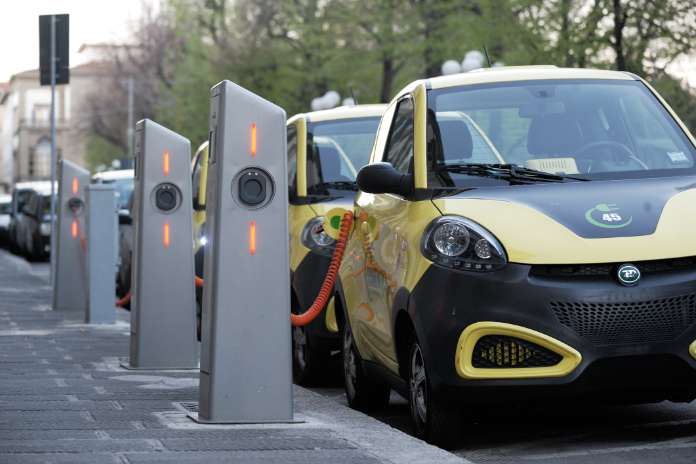Rivian Automotive, the electric vehicle manufacturer, recently reported its first-quarter earnings, showcasing a performance that surpassed Wall Street’s projections. Despite this positive news, the company’s stock experienced a notable decline, which has sparked conversations amongst investors and analysts. The company reported a revenue of $661 million for the quarter, exceeding analysts’ expectations of $652 million. This marks a significant achievement given the competitive landscape of the EV market.
One of the key factors contributing to Rivian’s success in the first quarter was its production and delivery numbers. The company produced 9,395 vehicles and delivered 7,946 during the period. These figures were in line with the company’s guidance, demonstrating Rivian’s ability to meet its targets despite ongoing supply chain challenges affecting the automotive industry. Moreover, Rivian reiterated its production goal of 50,000 vehicles for the year, underscoring its confidence in overcoming potential hurdles.
However, the stock’s decline post-earnings release can be attributed to several factors. Firstly, concerns about profitability remain at the forefront of investors’ minds. Rivian’s net loss for the quarter was $1.35 billion, slightly better than the $1.43 billion loss reported a year ago. While the improvement is a positive sign, the company is still far from achieving profitability, which remains a critical milestone for its long-term success.
Additionally, the broader market conditions have played a role in influencing Rivian’s stock performance. The tech-heavy NASDAQ index, where many EV companies are listed, has experienced volatility amid concerns about interest rate hikes and inflationary pressures. These macroeconomic factors have impacted investor sentiment towards growth-oriented stocks, including Rivian.
Rivian’s management is aware of the challenges ahead and has outlined strategic initiatives to address them. The company is focusing on scaling production, enhancing operational efficiency, and expanding its product lineup. Rivian’s R1T and R1S models have received positive reviews for their performance and design, and the company is looking to leverage this momentum by introducing new variants and features to attract a broader customer base.
Furthermore, Rivian’s partnerships with key industry players are expected to bolster its growth prospects. The company’s collaboration with Amazon for the delivery of electric vans is a testament to its competitive edge in the commercial vehicle segment. This partnership not only provides a steady revenue stream but also strengthens Rivian’s brand presence in the market.
In conclusion, while Rivian’s first-quarter performance exceeded expectations, the stock’s decline highlights the complexities of the EV market and the challenges facing new entrants. Investors will be closely watching Rivian’s efforts to achieve profitability and navigate the evolving industry landscape. As the company continues to execute its strategy, its ability to deliver on its promises will be crucial in restoring investor confidence and driving future growth.
Footnotes:
- Rivian reported revenue of $661 million for the quarter, beating analysts’ expectations. Source.
- The company’s net loss for the quarter was $1.35 billion, compared to $1.43 billion a year ago. Source.
Featured Image: Megapixl @ Chirnoaga



